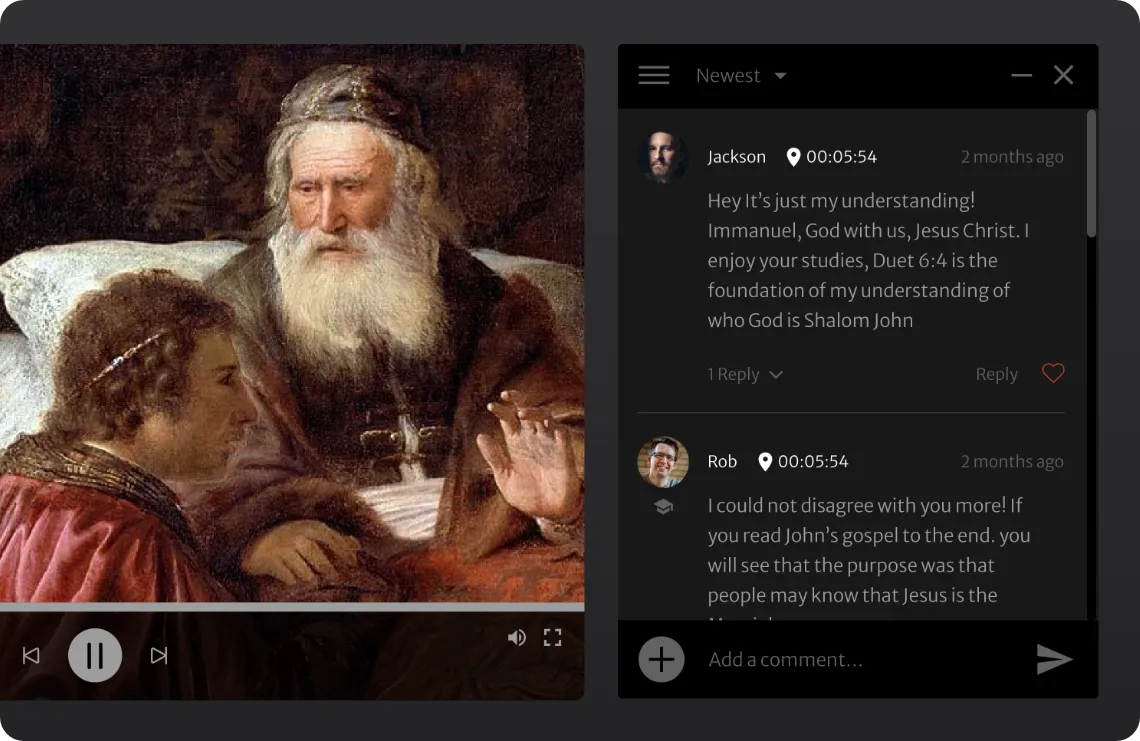Dr. Yeshaya Gruber
Professor of Jewish History and Culture
Dr. Yeshaya Gruber, Professor of Jewish History and Culture
The Bible consists of ancient texts, and the interpretive methods used to explain it are diverse and can be very complicated. We take the first verse of the Bible and explore how differently it can be understood. This course offers a brief survey of approaches and styles of Jewish commentators of biblical texts throughout history. The lectures offer an overview of prominent thinkers from ancient times to the present, including Philo, early rabbinic Midrashim, the Aramaic Targum, Rashi, Maimonides, Rabbi Soloveitchik, and many more. Interspersed with humorous observations about the nature and challenges of interpretation, this course is a must for anyone who wants to understand the ways of Jewish thinking about God's words a little better.
Dive deeper into this topic by exploring related content!
Dive deeper into this topic by exploring related content!

Start your journey today - only a few spots left!




Over 60 online biblical courses, more than 80 exclusive Roundtable Talks with top scholars, Israel Bible Weekly Magazine, Israel Bible Podcast episodes, and more! Dive into the world of Hebrew Culture and Context of the Bible with UNLIMITED access!
Start for FREEA variety of engaging online courses in Jewish and Biblical studies from Genesis to Revelation and beyond!
Face-to-face conversations with a broad array of experts and scholars from the world’s leading universities
Over 1,000 easy-to-read educational articles and inspirational insights from the Bible‘s original languages

Discover courses tailored to your interests. Our Personalized Recommendations help you find the perfect learning path, ensuring a rewarding and enriching experience

Engage with fellow learners and academic experts. Live Comments allow you to participate in interactive discussions, share insights, and build a vibrant learning community

Stay on track with your learning journey. The Course Progress Badge keeps you informed about your advancement in each course, motivating you to achieve your goals

Dozens of esteemed professors in one place! We collaborate with scholars from elite universities, including Oxford, Harvard, Berkeley, Tel Aviv, and more!
Begin Your Journey

Embark on a journey into the Jewish context of the Bible! You can earn certificates in 3 categories: Hebrew Bible, Jewish New Testament, and the Jewish Context and Culture Program Certificate.